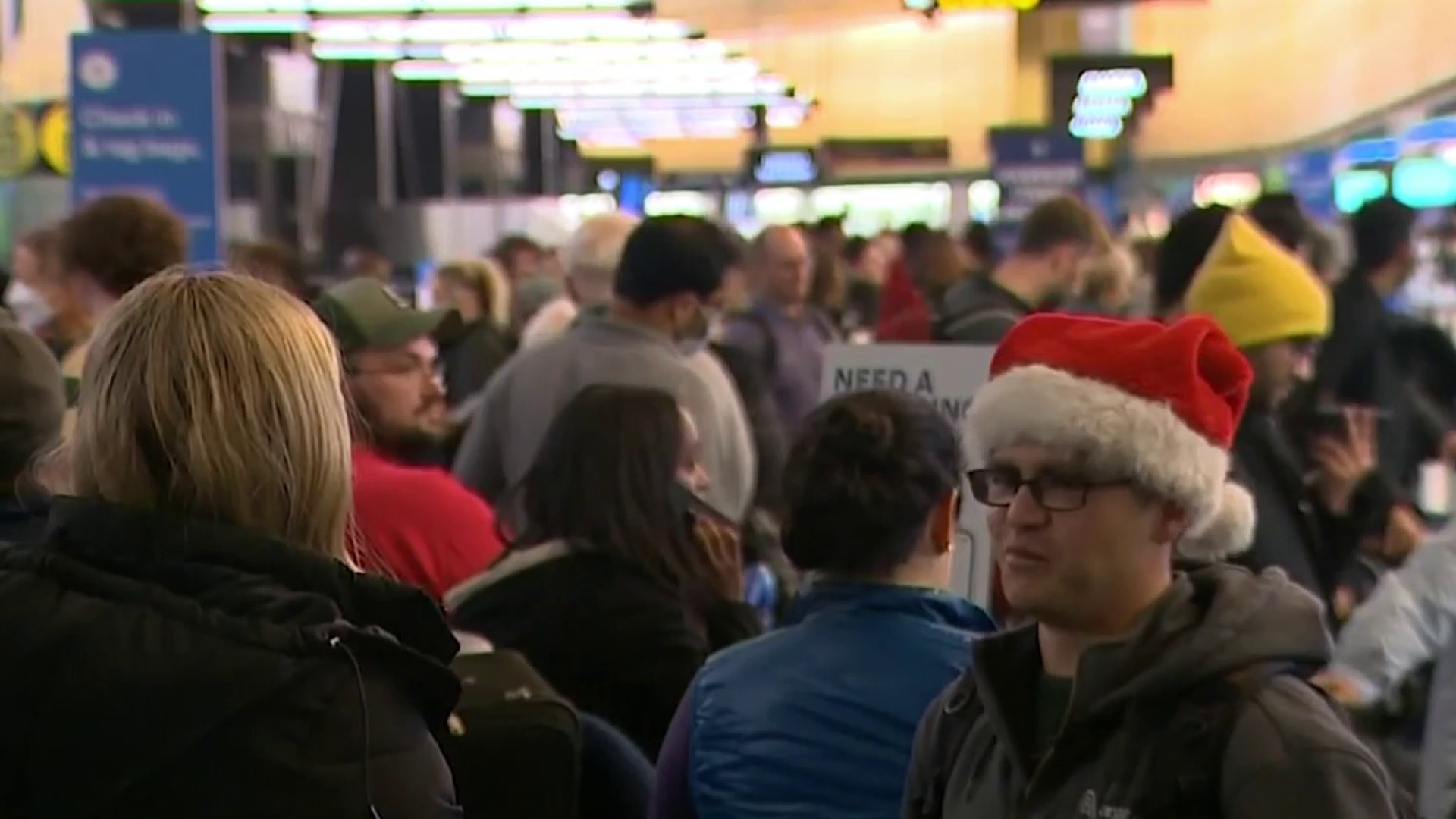Infectious disease experts are split on whether Boston Public Schools should bring back a mask mandate after the holiday break as COVID-19 metrics continue to rise.
Officials are considering a temporary mask mandate in an attempt to avoid repeating last year's staffing issues and student absenteeism related to a surge in cases. In a letter sent to families, officials said they could implement the policy for a couple of weeks after students and staff return to school and asked everyone to take precautions.
Top Boston doctors disagreed on whether a temporary mask mandate is a good idea, pointing to several other circulating respiratory viruses, holiday gatherings and the impact on education.
Tufts Medical Center's Shira Doron, Brigham and Women's Hospital's Dr. Daniel Kuritzkes and Boston Medical Center's Dr. David Hamer each explained their positions during the latest episode of NBC10 Boston's weekly "COVID Q&A" series.
Get New England news, weather forecasts and entertainment stories to your inbox. Sign up for NECN newsletters.
"We may not all agree on this, but I think it's a good idea at this point in time," Hamer said of mask requirements, noting that on top of COVID, people are still susceptible to flu and RSV.
RSV — short for respiratory syncytial virus — looks like a common cold in adults and older children, but both young children and older adults are at risk of severe infection. Meanwhile, the U.S. Centers for Disease Control and Prevention's flu map shows "very high" levels of flu activity in Massachusetts.
"There's going to be people coming in from having been with many family members and friends over the last, you know, week and a half or so, sort of coming together in school," Hamer said. "I think the risk for transmission in that context is going to be higher for a few weeks. And having either a mask mandate or a strong recommendation for mask use may blunt the onward transmission or expansion that could result in that context."
I don't think that school is the place to put the mask mandate when we have learned that it can interfere with the educational experience.
Dr. Shira Doron, Tufts Medical Center
Kuritzkes agreed.
"The issue is that it's not just about masks," he said. "How do you arrange the lunch periods? What do you do about other activities like chorus and band, or sports where people are not going to be masked? But in the classroom, it would certainly make sense to me -- at least for a limited period of time until we see numbers coming down -- to consider having people masked again."
Doron offered the sole dissenting opinion, arguing that masks likely won't make a difference considering that the general population has largely returned to pre-pandemic era socialization and interactions.
"To me it doesn't make sense to talk about mask mandates in just school when we aren't talking about them in crowded arenas, bars, nightclubs -- all the places where there are lots of people gathering. And the same trampoline park that the kids might go to straight from school," Doron said. "I don't think that school is the place to put the mask mandate when we have learned that it can interfere with the educational experience."
Doron, who has consistently opposed mask mandates in schools during regular appearances on the "COVID Q&A" series, added that requiring masks can adversely impact families.
During previous episodes, Doron recalled parents, students, teachers and administrators telling her that masks affect socialization and language learning, particularly for people with speech impediments, hearing impairment and those who are neurodivergent.



